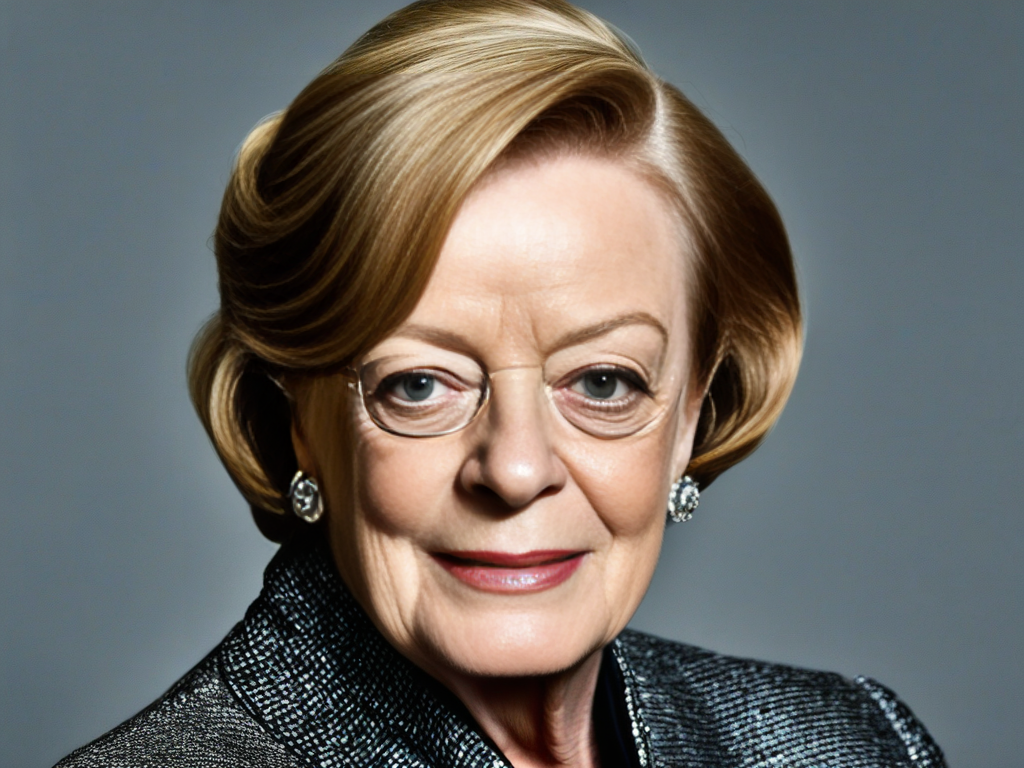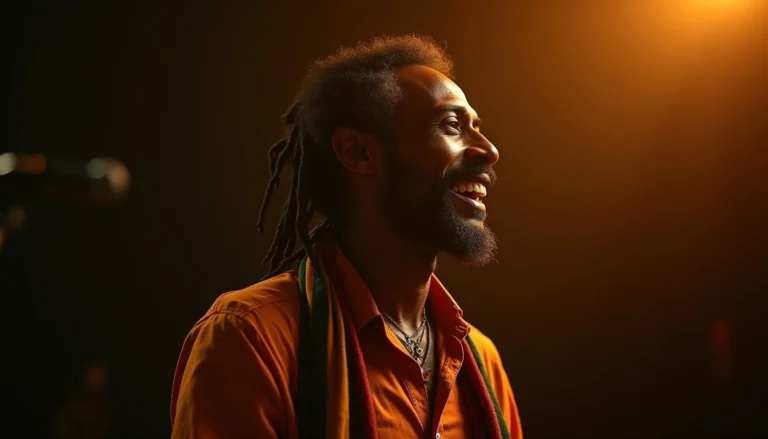Dame Margaret Natalie Smith, or Maggie Smith, died on September 27, 2024, at 89. She left an unparalleled legacy that spanned over six decades in theatre, film, and television. Born on December 28, 1934, in Ilford, Essex, Maggie Smith was a force to be reckoned with. She was a titan of the stage and screen who redefined acting with her wit, elegance, and unmatched talent.
Table of Contents
Early Life and Career Beginnings
Born to Margaret Hutton (née Little) and Nathaniel Smith, Maggie Smith was the youngest of three siblings. Her father, a pathologist at Oxford University, recognized her potential early on and nurtured her love for the arts.
She studied at the Oxford Playhouse School and began her career in the mid-1950s, performing in various productions, such as Twelfth Night, The Merry Wives of Windsor, and The Importance of Being Earnest.
Her breakthrough role came in 1959 with the Share My Lettuce revue, which she co-starred with Kenneth Williams. The show was a massive success, and Smith’s performance caught the attention of critics and audiences alike. This marked the beginning of her illustrious career.
A Theatrical Powerhouse
Maggie Smith’s stage career was nothing short of extraordinary. She was a mainstay at the National Theatre and the Royal Shakespeare Company, delivering powerhouse performances in plays like “Othello” (1966), “The Beaux’ Stratagem” (1970), and “Private Lives” (1972). Her portrayal of Desdemona in “Othello” opposite Laurence Olivier was particularly notable, showcasing her ability to hold her own against one of the greatest actors of all time.
Her stage work also included Broadway, where she debuted in 1974 with “Private Lives.” She returned to Broadway in 1990 to star in “Lettice and Lovage,” a play written specifically for her by Peter Shaffer. Her performance as Lettice Douffet earned her a Tony Award, further cementing her status as a theatrical powerhouse.
Conquering the Silver Screen
While Maggie Smith made her name on the stage, her film career was equally impressive. Her first major film role was in “Nowhere to Go” (1958). Still, her performance in “The Prime of Miss Jean Brodie” (1969) catapulted her to international stardom. She won her first Academy Award for Best Actress for portraying the titular character, a role she had previously played on stage.
Her filmography was diverse and extensive, ranging from period dramas like “A Room with a View” (1985) and “Gosford Park” (2001) to comedies like “Sister Act” (1992) and fantasy films like the “Harry Potter” series (2001-2011). In the latter, she played the formidable Minerva McGonagall, introducing herself to a new generation of fans who admired her sharp wit and stern demeanour.
Smith received six Oscar nominations throughout her career, winning twice – the second time for her supporting role in “California Suite” (1978). Her ability to seamlessly transition between genres and roles was a testament to her incredible versatility as an actress.
Television Triumphs
Maggie Smith also left an indelible mark on television. She starred in numerous TV films and series, including Memento Mori (1992), My House in Umbria (2003), and Capturing Mary (2007). However, her role as Violet Crawley, the Dowager Countess of Grantham, in the hit period drama Downton Abbey (2010-2015) became one of her most iconic performances.
Her character’s sharp-tongued quips and withering glances were a highlight of the show, earning her three Emmy Awards and a Golden Globe. Smith’s ability to deliver comedic lines with impeccable timing and sincerity made her a fan favorite. It contributed significantly to the show’s global success.
Awards and Accolades
Throughout her career, Maggie Smith received countless awards and accolades. She was nominated for nine BAFTA Awards, winning five, and received 10 Golden Globe nominations, winning three. In addition to her two Oscars, she was nominated for six Tony Awards, winning once. Her work on television was recognized with 11 Emmy nominations and four wins.
In 1970, she was appointed a Commander of the Order of the British Empire (CBE) and later elevated to Dame Commander (DBE) in 1990 for her services to the performing arts. In 2014, she also received the Companion of Honour (CH), one of the highest honours in the UK.
Personal Life
Maggie Smith was married twice. Her first marriage was to actor Robert Stephens in 1967. With him, she had two sons, Chris Larkin and Toby Stephens, both of whom followed their parents into acting. The couple divorced in 1975. She later married playwright Beverley Cross in 1975, and they remained together until he died in 1998.
Despite her fame, Smith was known for her humility and preference for a quiet life away from the spotlight. She rarely gave interviews and preferred to let her work speak for itself. Her dedication to her craft was unwavering, and she continued to work well into her eighties.
Legacy
Maggie Smith’s legacy is immense. She was a trailblazer for women in the industry, paving the way for future generations of actresses. Her ability to bring depth and nuance to her characters, whether leading roles or supporting parts, set a new standard for acting. She mastered her craft, continually evolving and challenging herself with each new role.
Her contributions to the arts were not limited to her performances. She also patronized various arts organizations, including the International Glaucoma Association and the Actors Centre. She used her platform to raise awareness about causes close to her heart, such as breast cancer research and support for the arts.
Tributes
Following the news of her passing, tributes poured in from across the globe. Fellow actors, directors, and fans shared their memories of Smith and expressed admiration for her work. Many highlighted her kindness, generosity, and unwavering commitment to her craft.
Daniel Radcliffe, who played Harry Potter alongside Smith in the film series, said, “Maggie was one of the first people to make me feel at ease on set. Her warmth and humour were infectious; she made every scene we shared a joy to film. She was a true icon, and her impact on the acting world will be felt for generations.”
Dame Judi Dench, Smith’s close friend and colleague, shared, “Maggie was one of the greatest actresses of our time. Her talent was unmatched, and her spirit was unbreakable. She will be deeply missed, but her legacy will live on through her incredible work.”
Final Years and Reflections
In her final years, Maggie Smith continued to act, appearing in films like “The Lady in the Van” (2015) and “A Boy Called Christmas” (2021). She reprised her role as Violet Crawley in the “Downton Abbey” films (2019 and 2022), providing fans comfort and familiarity.
Reflecting on her career in one of her rare interviews, Smith said, “I’ve been incredibly lucky to have had the opportunities I’ve had. I’ve worked with some of the most talented people in the industry, and I’ve been able to play a wide range of characters. I couldn’t have asked for a more fulfilling career.”
A Life Well Lived
Maggie Smith was more than just an actress; she was an institution. Her work transcended generations, and her impact on the arts will be felt for years. She leaves behind a body of unparalleled work in depth, breadth, and brilliance.
From her early days on the stage to her final performances on the screen, Maggie Smith captivated audiences with her talent, charisma, and wit. She was a true original, a once-in-a-generation talent who redefined what it meant to be an actress.
As we mourn her loss, we also celebrate her life and the incredible legacy she leaves behind. Maggie Smith may be gone, but her spirit lives on through her work, inspiring future generations of actors and reminding us of the power of art to touch our lives.
In the words of her character Violet Crawley, “Don’t be defeatist, dear. It’s very middle class.” Maggie Smith was anything but defeatist. She was a fighter, a trailblazer, and a true icon. Rest in peace, Dame Maggie Smith. You will be deeply missed, but your legacy will live on forever.






